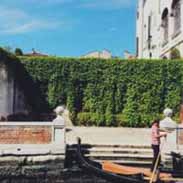AP World History Chp. 9 – Flashcards
Unlock all answers in this set
Unlock answersquestion
Justinian
answer
6-th century Byzantine emperor; failed to reconquer the western portions of the empire; revuilt Constantinople; codified Roman law.
question
Hagia Sophia
answer
Great domed church constructed during the reign of Justinian.
question
Body of Civil Law
answer
Justinian's codification of Roman law; made Roman law a coherent basis for political and economic life.
question
Bulgaria
answer
Slavic kingdom in the Balkans; put constant pressure on the Byzantine Empire; defeated by Basis II in 2014.
question
Icons
answer
Images of religious figure venerated by Byzantine Christians.
question
Iconoclasm
answer
The breaking of images; a religious controversy of the 8th centurty; Byzantine emperor attempted, but failed, to suppress icon veneration.
question
Battle of Manzikert
answer
Seljuk Turk victory in 1071 over Byzantium; resulted in loss of the empire's rich Anatolian territory.
question
Cyril and Methodius
answer
Byzantine missionaries sent to convert eastern Europe and the Balkans; responsible for creating the Slavic written script called Cyrillic.
question
Kiev
answer
Commercial city in Ukraine stablished by Scandinavians in 9th century; became the center for a kingdom that flourished until the 12th century.
question
Vladimir I
answer
Ruler of Kiev; converted kingdom to Orthodox Christianity.
question
Russian Orthodoxy
answer
Russian form of Christianity brought from the Byzantine Empire.
question
Boyars
answer
Russian landholding aristocrats; possessed less political power than their western European counterparts.
question
Tatars
answer
Mongols who conquered RUssian cities during the 13th century; left Russian church and aristocracy intact.
question
Byzantine Empire
answer
(500 CE - 1453 CE) Eastern portion of the Roman Empire which survived beyond the collapse of the Roman Empire with its capital at Constantinople; retained Mediterranean culture, particularly Greek; later lost Palestine, Syria, and Egypt to Islam.
question
Constantinople
answer
Capital of the Byzantine Empire; constructed on the site of Byzantium, an old Greek city on the Bosporus. (Today's Istanbul)
question
Orthodox Christian Church
answer
Eastern church which was created in 1053 after the schism from the western Roman church; it's head is the patriarch of Constantinople.
question
Constantine
answer
(312-337) Strong emperor toward the end of the Roman Empire who tried with some success to reverse the tide of its ultimate fall. Constantine moved the capital away from Rome to Constantinople and allowed freedom of worship for Christians with the Edict of Milan.
question
Huns
answer
Group of nomadic tribes that pushed through central Europe in the 4th and 5th centuries C.E. instigating the migration of the Germanic tribes into the Roman Empire.
question
Sassanian Empire
answer
Persian Empire which continued Persian traditions but instituted the Zoroastrian religion as the state religion.
question
Procopius
answer
Historian of the Byzantine Empire who in his Secret History revealed the cruelty of the autocratic system in which the emperor ruled by divine providence.
question
Hellenistic Culture
answer
After Alexander's death, Greek art, education, and culture merged with those in the Middle East. Trade and important scientific centers were established, such as Alexandria, Egypt.
question
Greek Fire
answer
Incendiary material used by the Byzantines described as able to burn in water.
question
Tsar
answer
Term used for the emperors of Russia; literally means Caesar. (Also czar)
question
Cyrillic Alphabet
answer
Alphabet named after Saint Cyril who used it to help convert Slavs to Orthodox Christianity.
question
Rurik
answer
Legendary Scandinavian regarded as founder of the first kingdom of Russia based in Kiev in 855 C.E



